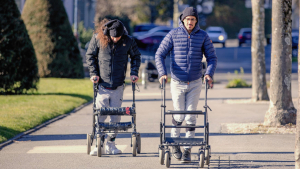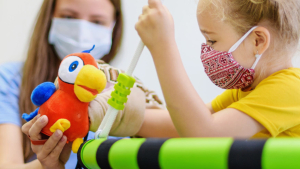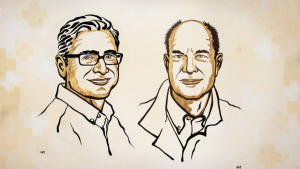The desperate Papageno wants to commit suicide in Mozart's "The Magic Flute". But when three children show him a different path, he decides. Can life -tired people possibly also draw new hope from media reports? A research group from the Medical University of Vienna came up with this idea when it was looking for a connection between media reports and suicide statistics in Austria, and in 2010 raised the papageno effect. So far, however, he has only been demonstrated in a few studies.
Now one of the Viennese group, Thomas Niederkrotenthaler, and an international team have re-evaluated eight studies that have experimentally investigated such media reports and their effect with more than 2300 test subjects. The meta-analysis actually revealed a small effect, as the researchers report: suicidal thoughts decreased. "Stories about people who were able to successfully cope with their suicidal crises can cause a decrease in suicidality," Niederkrotenthaler and his colleague Benedikt Til wrote in 2019 about the current state of research.
However, it has not been fully clarified what is based on the effect of psychologically and what type of article contributes to this. Apparently there is no need for experience reports from those affected. In an experiment from 2018, a team around Till and Niederkrotenthaler had asked more than 500 adults to read a newspaper article in which an expert informed of ways to prevent suicide. In a test condition, she also told how she had mastered a suicidal crisis as a teenager; In another variant she didn't. In both cases, the test subjects reported less suicidal thoughts than a control group that had read an interview about another health issue. The Enlightenment apparently worked with and without a personal experience report.
"If the media focuses on coping strategies for suicidal thoughts, this can reduce suicidal thoughts," say Till and Niederkrotenthaler. "Therefore, treatment successes and possibilities for ways out of the crisis should also be included in the reporting on suicidality." This means educating people about warning signs, offers of help and the suffering of the bereaved.
The Papageno effect has a famous brother
Recommendations on how to deal with suicides in the media have been around for a long time. The background is the well-documented »Werther effect«. The name goes back to Goethe's epistolary novel »The Sorrows of Young Werther« from 1774, at the end of which the main character takes his own life out of unhappy love. After publication, there are said to have been numerous acts of imitation. Today, the »Werther effect« can be observed above all after media reports about prominent suicides, such as that of football goalkeeper Robert Enke in 2009 or actor Robin Williams in 2014. In the two following months, the number of suicides rose by 8 to 18 percent according to a team led by Niederkrotenthaler in 2020 in a meta-analysis.
In order to prevent such imbalance, the national suicide prevention program for Germany recommends, among other things, not to name any details about the person, method and accompanying circumstances, do not offer an easy or comprehensible explanation and not to quote farewell words. Experts also speak out for a neutral choice of words, such as "suicide" or "suicide" instead of "suicide" or "suicide". The guidelines of the German press code also require reluctance in reporting on suicide.
Methods based on necessity
Do you sometimes remember to take your life? Does life seem senseless to them or their need? Do you have no hope anymore? Then please contact contact points that people can help in crisis situations: family doctor, resident psychotherapist or psychiatrist or the emergency services of clinics.



















